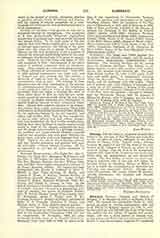

Albergati, NICCOLO, Cardinal and Bishop of Bologna, b. at Bologna in 1357; d. at Sienna, May 9, 1443. He entered the Carthusian Order in 1394, served as prior in various monasteries, and was made Bishop of Bologna, against his will, in 1417. In this office he still followed the Rule of his Order, was zealous for the reform of regular and secular clergy, and was a great patron of learned men, among whom was Aeneas Sylvius, afterwards Pius II, Martin V, and his successor, Eugenius IV. Employed him on several important missions, thrice to France and thrice to Lombardy. He was made a Cardinal in 1432, and again in which he also filled in January, 1348, at Ferrara, whither Eugenius had transferred the Synod. He took part in the conferences with the Greeks in preparation for the union effected at Florence. The Pope appointed him Grand Penitentiary shortly before his death. Though never formally canonized he has long been popularly venerated as Blessed. He is the author of various theological and other treatises including: “Recollecta multae electionis”; “Apologia pro Eugenio IV”; sermons, prayers, epistles. His life has been written by many different authors, contemporary and since his time.
FRANCIS W. GREY

